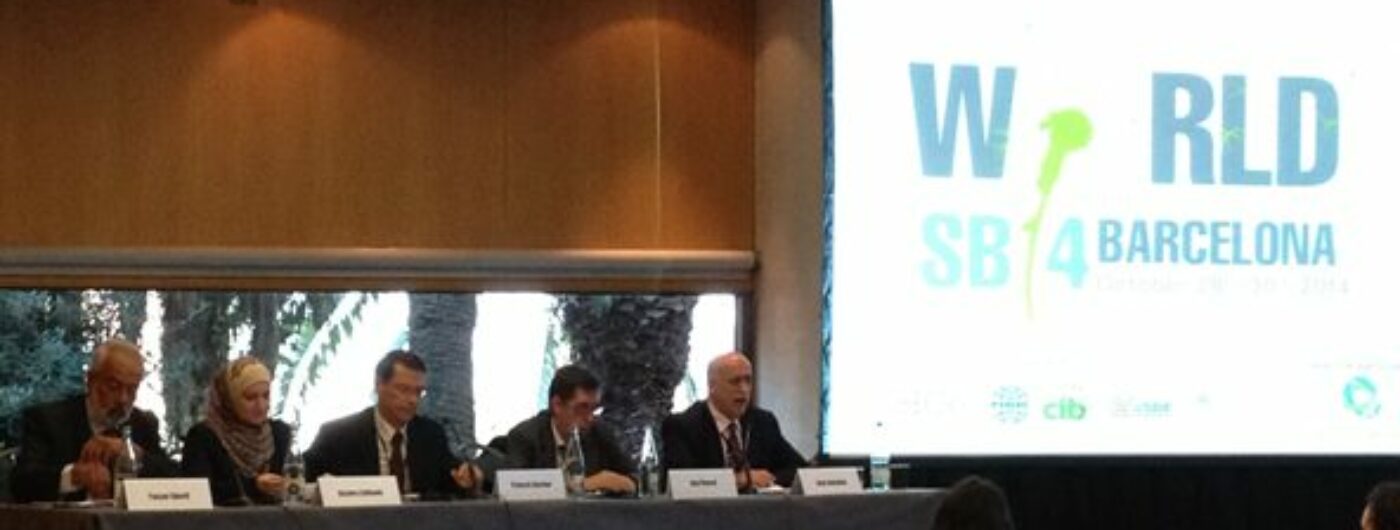
Addressing the challenges and creating opportunities for sustainable urban development in the Mediterranean region – UfM Secretariat holds session at the WSB14 Conference Barcelona
Barcelona, 29 October 2014 – Within the framework of the World Sustainable Building 2014 Conference Barcelona (WSB14 Barcelona), the UfM Secretariat hosted a session entitled “Addressing the challenges and creating opportunities for sustainable development in the Mediterranean region: What role can the UfM Secretariat play?”. This session took place on 29 October at the Palau de Congressos de Catalunya, Barcelona.
Mediterranean countries are in the midst of a spatial transformation linked to population growth, widespread urbanisation and major changes in their economic and social model. This transformation is particularly felt in their cities, which are faced with new environmental impacts, natural risks increased by climate change, the introduction of new technologies and recent political and social developments.
In this context, as was reflected in the session, the UfM Secretariat aims to positively contribute to urban development by promoting innovative urban renewal, regeneration and development, as well as a multi-level and holistic approach to spatial planning which takes both physical and governance aspects into account. With these aims in mind and with the overarching goal of improving living conditions in the region, the Urban Projects Finance Initiative (UPFI) plays a central role.
Mediterranean countries also face common energy challenges that require secure, diversified energy supplies and the development and modernisation of institutional frameworks, support tools, energy infrastructures and industrial capacities. The Secretariat plays an important role in this regard.
Moreover, the Mediterranean region has repeatedly been identified as one of the main climate change hotspots worldwide. The Ministerial Declaration endorsed at the UfM Ministerial Meeting on Environment and Climate Change (Athens, 13 May 2014) clearly recognises that combining efforts and resources is crucial to tackle threats and seize opportunities in addressing the challenges of climate change in the region, while fostering social development and economic growth.
Arab Hoballah, Head of Sustainable Consumption and Production of the UNEP’s Division of Technology, Industry and Economics and Member of the UNEP’s Sustainable Building and Climate Initiative, chaired the session organised by the UfM Secretariat. The session’s Keynote Speakers were UfM Senior Advisors Guy Fleuret and François Guerber, as well as Bushra Zalloom, Doctoral Student, Birmingham City University, United Kingdom; and Yasser Sherif, head of the consultancy firm Environics.
WSB14 Barcelona aimed to address the social and environmental challenges the building sector faces, such as the need to reduce its ecological footprint, promote a sustainable economic model that creates employment opportunities and provide decent housing.
The three-day conference’s main outcome is a roadmap to kick-start and guide a process to allow the building sector to define a local action plan to give an effective response to global urban development and energy challenges.

